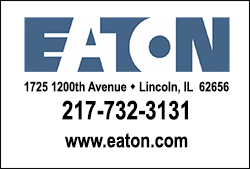|
 Post-election committee leadership changes and growing momentum
behind bipartisan fixes may lead to tweaks to the 2010 Dodd-Frank
law for the smallest community banks, larger firms such as PNC
Financial Services <PNC.N> of Pittsburgh and Regions Financial <RF.N>
of Birmingham, Alabama, and insurers, lobbyists and congressional
staffers said. Post-election committee leadership changes and growing momentum
behind bipartisan fixes may lead to tweaks to the 2010 Dodd-Frank
law for the smallest community banks, larger firms such as PNC
Financial Services <PNC.N> of Pittsburgh and Regions Financial <RF.N>
of Birmingham, Alabama, and insurers, lobbyists and congressional
staffers said.
Small banks "make loans to local small businesses, support their
communities, and would not threaten our financial system if they
defaulted," Senator Sherrod Brown, an Ohio Democrat, said in a
statement to Reuters. Brown is a contender for a committee
leadership post in the 114th Congress, which begins in January.
To be sure, President Barack Obama retains his veto power, so there
will be no gutting of Dodd-Frank, which aims to make banks less
risky, end the problem of "too big to fail" institutions, and
prevent a repeat of the 2007-2009 financial crisis.
Instead, the possible changes range from adjusting which banks count
as "rural" and are exempted from certain rules, to declaring fewer
banks big enough that their failure would threaten markets, a
designation that brings extra regulatory oversight.

"I think that it's likely that we will see actually some significant
community bank regulatory relief in the new Congress," said Camden
Fine, head of the Independent Community Bankers of America, a
Washington lobby group for small banks.
Community institutions have won supporters on both sides of the
aisle and in both houses of Congress, in part because most lawmakers
represent a small bank. The House of Representatives has approved
bipartisan bills to free small banks from Federal Reserve and other
rules.
Banks that describe themselves as regional banks, including PNC, the
11th biggest US holding company with $324 billion in assets,
according to U.S. regulatory data, and Capital One <COF.N> of
McLean, Virginia, the 13th biggest with about $291 billion in
assets, have banded together to form a coalition that argues they
are like community banks, accepting deposits and lending to
consumers and local businesses, and shouldn't have to meet the same
requirements as Wall Street firms.
"The Regional Bank Coalition believes that it's time to move beyond
the simple asset-only model to determine systemic risk because it
does not match the reality of the U.S. banking system," Deron
Smithy, treasurer of Regions Bank, said in congressional testimony
in May. "Rules designed for large, complex firms impose real,
burdensome costs when applied to middle-market lenders." Regions has
$118 billion in assets and is the 26th biggest holding company.
Under Dodd-Frank, banks with more than $50 billion in assets must
test their performance in a hypothetical crisis, plan for what would
happen if they should fail and meet other rules. A bill in the House
to change that threshold now has more than 70 co-sponsors.
"We never thought $50 billion was a forever number, and I think it
was one of those things we would have looked at again," former
Representative Barney Frank, a Democrat and one of the law's
co-authors, said in an interview.
Senate Democrats, led by Banking Committee Chairman Tim Johnson,
shied away from changes to Dodd-Frank for fear Republicans would try
to use the opportunity to weaken the law. But Johnson is retiring,
and several of his possible successors support targeted relief for
some institutions.

[to top of second column] |

Johnson's committee has already moved forward with changes for
insurers. The Senate in June voted to change the so-called "Collins
amendment," which governs capital rules for big insurers.
The adjustment, which would no longer make insurers follow banks'
relatively more strict capital rules, was sought by Prudential
Financial and MetLife.
"The minute that we saw the Collins amendment pass ... it became
very clear that there could be legislative fixes to the Dodd-Frank
Act in the 114th Congress," said Isaac Boltansky, an analyst with
Compass Point Research and Trading.
POLITICALLY DIVISIVE
Despite limited areas of bipartisan agreement, most banking issues
remain politically divisive.
For instance, Brown, a possible chairman of the banking committee,
has scrutinized consumer products such as payday loans. Senators
Richard Shelby and Mike Crapo, potential leaders if Republicans take
over, are critical of the new agency that oversees those products.
Neither side can make headway on pet issues single-handedly. "The
Republicans can't get anything done in the Senate without some
Democrat support," said Mark Calabria, a former Shelby staffer who
is now at the libertarian Cato Institute.
There is also concern that the House and Senate have struggled to
cooperate even on issues they agree on, such as the Collins bill.
"That doesn't bode well for larger, more complex issues," Brown
said.
House Financial Services Committee Chairman Jeb Hensarling wants to
ease the Collins amendment, and could still do that before the
midterm elections. But he might attach it to other Dodd-Frank
legislation that Democrats would not support, congressional staffers
said.
"When we have tried to forge compromises with the chairman, he has
insisted on undermining financial stability and consumer protection
by providing carve-outs for large banks," Maxine Waters, the top
Democrat on the committee, said in a statement to Reuters.

Hensarling has blamed the Senate, where he has said "good ideas go
to languish and fail," for not taking up other relief bills. A
committee staffer said the House had passed numerous bipartisan
financial bills that the Senate has not taken up, including to
exempt small banks from some Fed and consumer bureau rules.
(Reporting by Emily Stephenson, additional reporting by Peter
Rudegeair in New York; Editing by Karey Van Hall and John Pickering)
[© 2014 Thomson Reuters. All rights
reserved.] Copyright
2014 Reuters. All rights reserved. This material may not be
published, broadcast, rewritten or redistributed. |